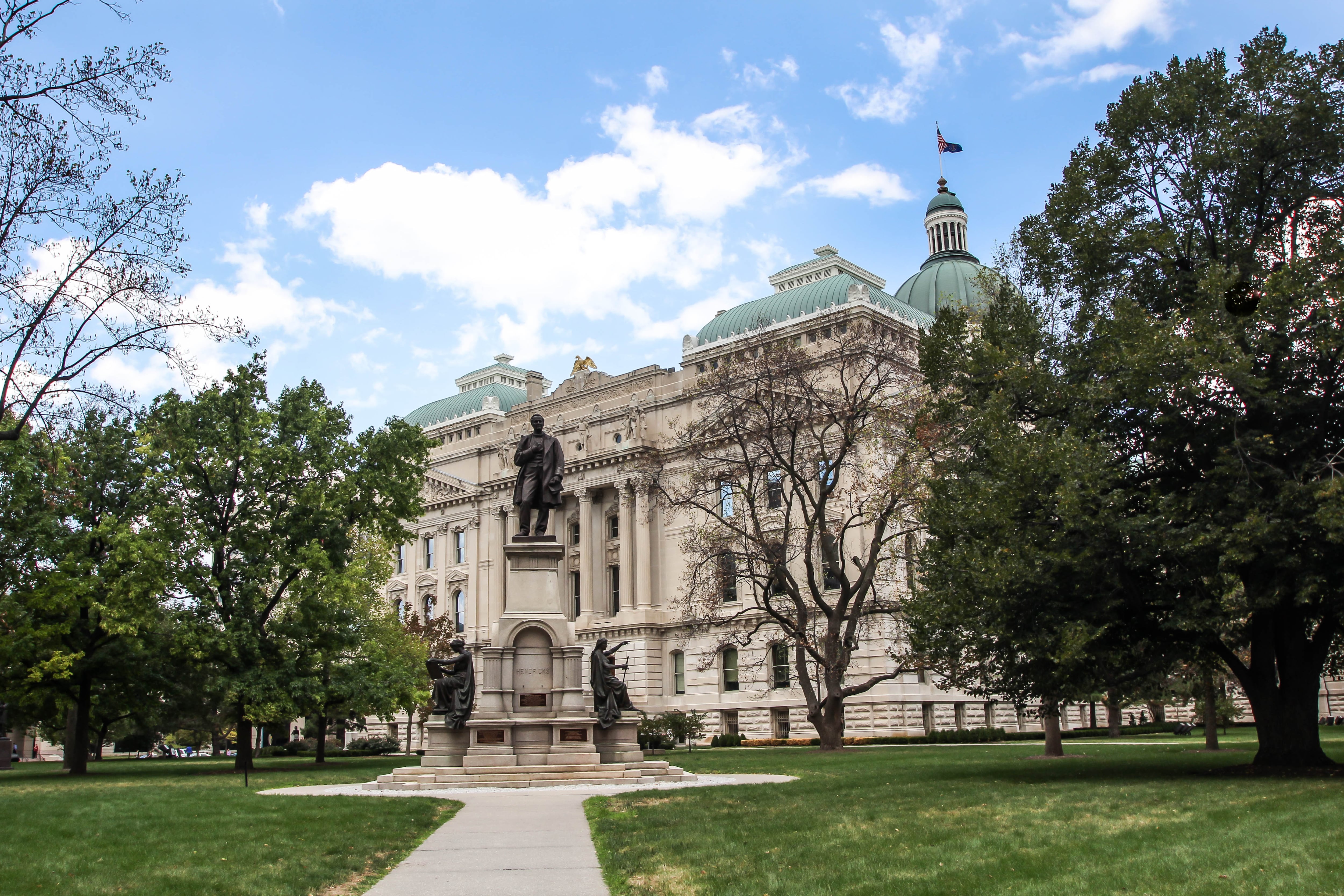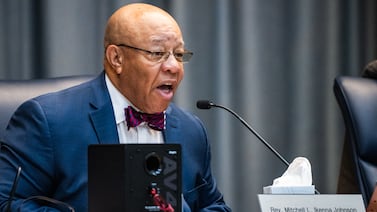Sign up for Chalkbeat Indiana’s free daily newsletter to keep up with Indianapolis Public Schools, Marion County’s township districts, and statewide education news.
What started as an Indiana district’s proposal to retain teachers has led to allegations of unfair labor practices, public anger at school board members, and officials’ decision to bar the teachers union president from the classroom.
In May, Richmond schools announced one-time bonuses for teachers in an effort to staunch turnover rates of more than 25% in some buildings. All teachers in good standing would receive supplemental payments of $525. The district targeted additional money at mid-career teachers whose compensation hadn’t increased in line with their experience.
But the Richmond Education Association argued that the plan affected compensation, and thus would need to be discussed during the fall bargaining season that began Sept. 15, per Indiana law. It filed an unfair labor practice complaint against the district.
In the months that followed, the union said the district retaliated by disinviting its representatives from a back-to-school event before eventually placing president and longtime educator Kelley McDermott on leave and threatening to cancel her teaching contract. Union representatives also say teachers have been instructed to inform the superintendent if they want to speak to school board members.
The situation in Richmond is unfolding against a long history of the winnowing of teachers’ collective bargaining rights in Indiana, in addition to an ongoing shortage of educators in certain fields and classroom subjects. Over roughly the past decade, the number of people entering the teaching profession has dipped in Indiana, while the number of people leaving it has risen, the state reported last year; enrollment also fell over the same period. And across the nation, more teachers than usual left the profession after the 2021-22 school year, a Chalkbeat analysis showed.
A state law enacted this year and sponsored by state Sen. Jeff Raatz, a Richmond Republican, nixed a requirement for school districts to discuss changes to working conditions with union representatives at monthly meetings. Advocates said the change would reduce red tape — observers say it has hurt teacher morale. (Raatz did not respond to a request for comment.)
Representatives of Richmond schools did not respond to Chalkbeat’s requests for comment on the situation. Both the district and the union have said they want to keep classrooms staffed by experienced teachers — but they remain at an impasse on the best way to do so as bargaining officially begins.
What must school districts negotiate with teachers unions?
Lawmakers stripped Indiana teachers of the right to collectively bargain over working conditions like class sizes and schedules under a 2011 law. The topics that teachers can bargain over during the fall bargaining window are salaries, wages, and benefits, including pay increases.
That put Richmond’s compensation plan squarely in the union’s territory, representatives said.
The district’s plan delineated the amount teachers would receive in one-time supplemental pay on top of the $525 bonus based on their current salary, their years of experience, and their education. For example, a teacher with eight years of teaching experience and a bachelor’s degree whose base salary is $44,000 would receive a supplemental payment of $4,750.
But the union said that passing this plan to boost the pay of around 60% of teachers left less district funding to negotiate raises for the remaining teachers when bargaining began in the fall. Moreover, the board approved the plan without talking to the union, representatives said.
“We’re not opposed to fixing this problem,” McDermott said to the board. “What we are opposed to is stripping the association of its collective bargaining rights, which are legally protected.”
Board members argued that Indiana law also gave them the flexibility to offer supplemental pay in order to retain teachers, or to reduce the difference between minimum and average salaries in the district, without input from the Richmond Education Association.
“It has been a problem without a solution for a very long time,” board President Nicole Stults said at the May board meeting. “This does provide us with a solution that addresses the immediate bleed, so to speak, the immediate retention issue that we have.”
District representatives said offering supplemental pay was critical in order to stop losing teachers to neighboring districts. Data indicated that Richmond teachers have to work for 13 years in order to make the starting salary of a neighboring district.
“The consistency that students see is important, those relationships that students build with their teachers is critical to academic success, so the retention of teachers is critical to their academic success,” board member Pete Zaleski said in May.
‘This will lead to educators leaving the profession’
A September board meeting drew a large crowd of union members and supporters outraged over how the district has handled the pay issue and McDermott’s teaching contract.
By keeping McDermott out of the classroom, the district has left her students without a consistent teacher, speakers said — the opposite of its stated goal.
“Look at how many teachers are leaving and how many teaching openings there are each year. Please think this through and return the teacher to her teaching position, where she is needed to teach the youth of Richmond,” one speaker said. “Make this again a place to be proud to teach, not a temporary step along the way.”
McDermott could not be reached for comment. She remains on administrative leave after the district announced it would consider canceling her teaching contract, according to union Vice President Jay Lee.
Lee said that talks with the district have never been so contentious in the past.
The union opted to wait to begin bargaining until after Oct. 2, when schools will tally up how many students they’re educating in the fall semester — an event known as Count Day — in order to understand how much funding would be available.
“This is a Band-Aid,” Lee said of the district’s pay plan.
In a video posted to the district’s YouTube channel after the September board meeting, Richmond board president Stults said neither the district nor the board could comment on the personnel situation regarding McDermott. She said that apart from that issue, “relationships among the board, administration, and teachers are quite positive and stronger than they have been in recent years.”
She cited positive feedback from teachers regarding the supplemental pay, as well as a series of meetings throughout the year between district employees and upper administration.
Finally, she said the district has tried to implement the new law ending monthly discussions between administrators and union members positively, “allowing for a more focused approach to building level issues.”
Jennifer Smith-Margraf, vice president of the Indiana State Teachers Association, said it’s not clear why Richmond schools did not do what it did in previous years and wait for the bargaining season to discuss compensation this year.
But the cumulative effect of the unilateral changes to pay and the new law that lets districts avoid discussing working conditions with unions have made the situation worse, she said.
“The two main reasons people leave education are low pay and benefits, and not having their voices heard,” she said. “In the long run, this will lead to educators leaving the profession.”
It’s not clear if lawmakers will make further changes next session — but Smith-Margraf said the union supports the right to bargaining and discussion.
“Places that do both bargaining and discussion are doing a much better job of retaining educators,” Smith-Margraf said. “Where there is a clear indication that my voice doesn’t matter causes people to leave and go other places.”
Aleksandra Appleton covers Indiana education policy and writes about K-12 schools across the state. Contact her at aappleton@chalkbeat.org.





